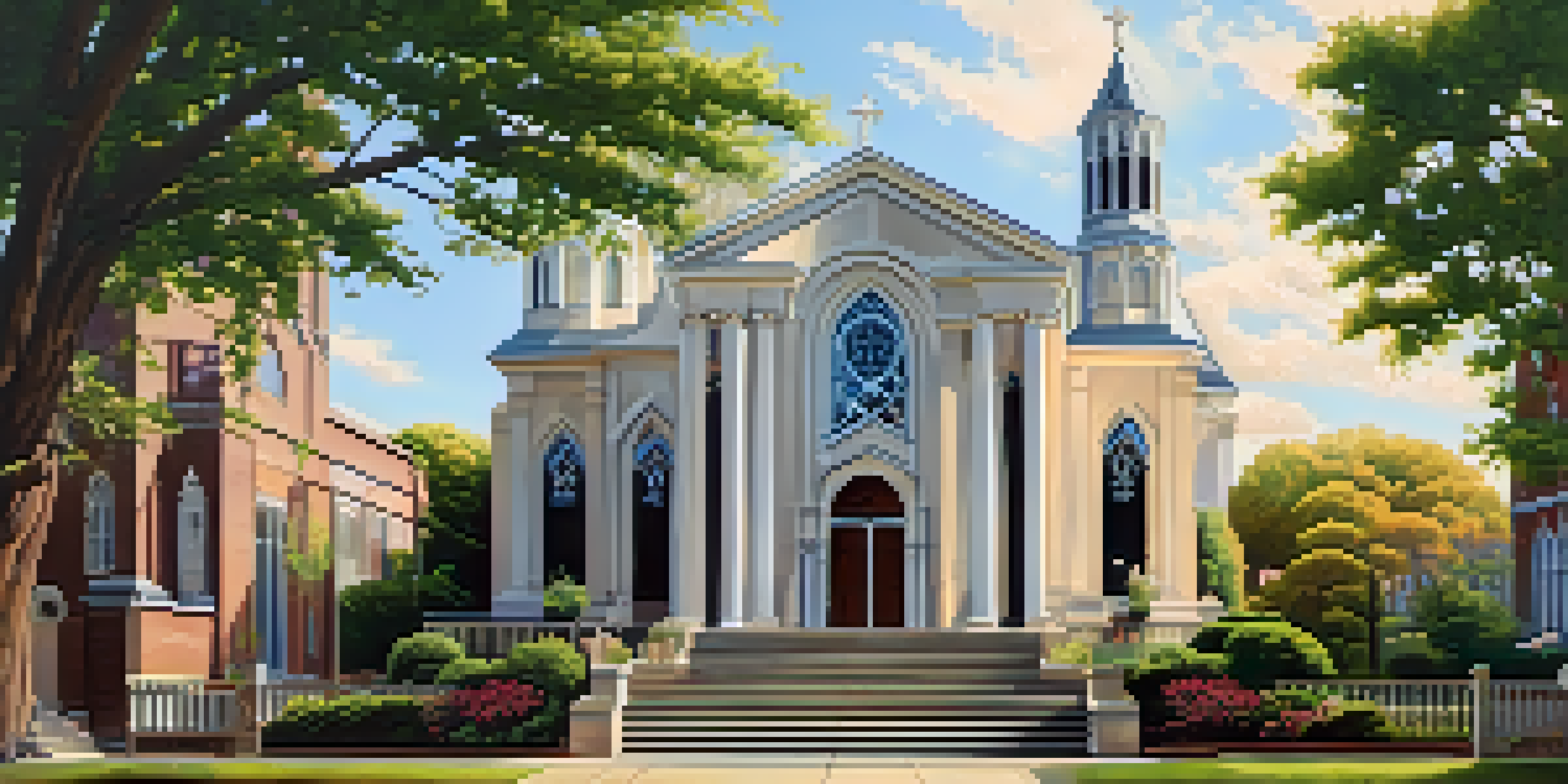Memphis' Historic Churches and Their Role in Civil Rights

The Historical Significance of Memphis Churches
Memphis is home to a rich tapestry of historic churches that have played pivotal roles in the city’s cultural and social landscape. From the early days of settlement, these churches became sanctuaries for the African American community, providing spiritual guidance and a sense of belonging. They served as places not just for worship, but also for community gatherings, fostering a spirit of unity and resilience among congregants.
The Role of Churches in the Civil Rights Movement
During the Civil Rights Movement, churches in Memphis transformed into crucial hubs for activism and organization. Leaders like Dr. Martin Luther King Jr. often spoke in these sacred spaces, using the pulpit to inspire action and promote equality. These gatherings helped galvanize the community, enabling collective efforts toward social change and justice.
Churches as Community Sanctuaries
Memphis churches have historically served as sanctuaries that fostered unity and resilience within the African American community.
Iconic Churches and Their Civil Rights Contributions
Several churches stand out in Memphis for their significant contributions to the Civil Rights Movement. For example, the historic Abyssinian Missionary Baptist Church was a meeting point for many strategizing for social justice. Its walls echo the voices of activists who organized marches and protests, highlighting how these spaces were essential for mobilizing the community.
Memphis Churches as Safe Havens
In times of turmoil, Memphis churches provided safe havens for those involved in the fight for civil rights. These sacred spaces offered not only refuge but also resources and support to those facing violence and discrimination. The churches’ doors were always open, welcoming individuals seeking solace and strength during challenging times.
Hubs of Civil Rights Activism
During the Civil Rights Movement, churches became vital centers for activism, inspiring community organization and social change.
The Legacy of Civil Rights Leaders in Churches
Many prominent civil rights leaders found their voices within the walls of Memphis churches. Figures like Reverend Benjamin Hooks and Reverend Samuel Billy Kyles used their platforms to advocate for change and inspire others. Their legacies continue to resonate, reminding us of the powerful role that faith leaders played in the struggle for equality.
Modern Impacts of Historic Churches
Today, many of Memphis' historic churches continue to engage with social justice issues, echoing their long-standing commitment to community activism. They host events and programs that address contemporary challenges, ensuring that the spirit of the Civil Rights Movement lives on. This ongoing engagement helps foster a dialogue about equality and justice in today’s society.
Ongoing Social Justice Engagement
Today, many historic churches in Memphis continue to uphold their legacy by actively engaging in social justice issues and community outreach.
Community Engagement and Outreach Programs
Memphis churches are deeply involved in outreach programs aimed at uplifting the community, from food banks to educational initiatives. These efforts demonstrate a continuation of the mission to serve and support those in need, reflecting the values instilled during the Civil Rights Movement. By addressing the current social issues, these churches maintain their relevance and commitment to social justice.
Preserving the Historical Significance of Memphis Churches
Preserving the history of these churches is vital for future generations to understand their role in the Civil Rights Movement. Efforts are underway to maintain their physical structures and historical significance through restoration projects and educational programs. By celebrating their legacy, Memphis ensures that the lessons learned from the past continue to inspire future activists.